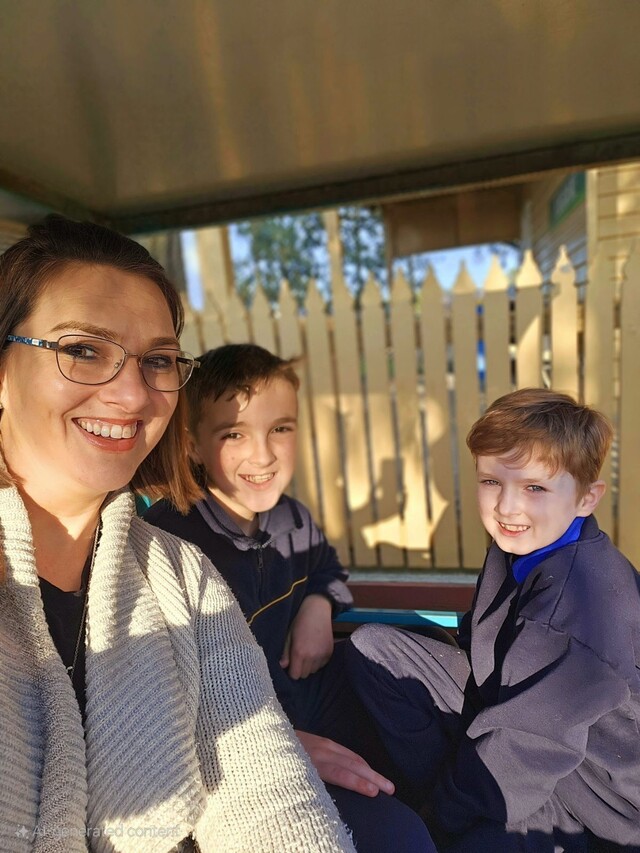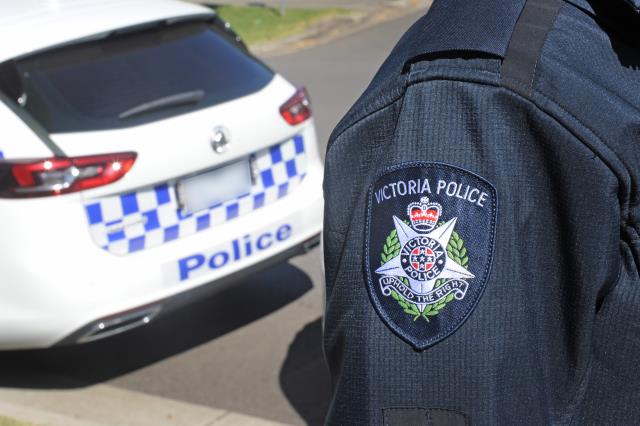As National Carers Week draws nearer, the time to recognise, celebrate and raise awareness of those who provide care to a family member or friend with disabilities is nigh.
To support worker Haeli Walker, it’s more than just acknowledgement – it’s also about embracing the normalcy and commonality of caring for those with disabilities.
Alongside her 11-year-old son, Flynn, both look after Aston, the youngest in the family at 8 years old who was diagnosed with autism, epilepsy and learning delays.
“It’s just a daily task, you know? It’s something that I don’t even think about doing, I just do it to support that person because they go through their own challenges and it’s hard for them to have that guidance,” Haeli said.
The family, who live in Narre Warren East care for Aston through his twice-daily medications, driving to medical appointments, personal care and so on; a role that Haeli would no doubt be exhausted by were it not for the help of her son, Flynn.
Taking responsibility for Aston’s daily routine, helping him dress, his homework and emotional support if he became upset is all part of Flynn’s contribution.
He said that “my caring role, looking after my brother is hard, but I love my brother and the time we spend together”.
Being around family members who had disabilities since a young age, Haeli always had a drive to care for others.
People with disabilities “may feel like they can’t speak up, whereas with others like me helping them, [we] can put them in the right direction”.
“My auntie and uncle both have disabilities and I’ve just always grown up being around people that have needed help, and I thought, I might as well.
“I want to get into this because this is what I enjoy doing, I’ve always had a passion for it and it can be as simple as smiling and listening to that person, it helps them get through their day,” Haeli said.
The same can be said for Flynn, while it can be difficult from time to time, Haeli added that Flynn doesn’t see it as “caring, he just sees it as his brotherly duty”.
“He’s just there to protect his brother, he loves him to bits; even when Aston has his meltdowns, his ups and downs, he just sees that as ‘oh, that’s my brother’, you know?”
From children to adults, Haeli stressed the importance of how everyone sees one another, and that while acknowledging disabilities is key, one should not shun or disparage people’s being.
“There’s a lot of stigma around, there’s a lot of judgement; back in time when people learned that someone had autistic traits or mental illness, they were just thrown into the asylums,” she said.
“Now we’ve got support in hand, it’s being recognised, and it needs to be recognised; there needs to be more learned about it, for parents, adults, everyone out there.”
The Walker family receive support from the Villa Maria Catholic Homes (VMCH), who provide aged care, disability, retirement living and education services.
Flynn is supported with school equipment and supplies, as well as access to young carer events with the chance to connect with peers and others in similar situations.
Case manager Nicola Mallinson stresses the importance of recognising young carers in Australia, which according to Carers Victoria, is estimated to be around 71,600, or 1 in 11 people aged under 25.
“We know that most young carers are hidden within our community because they don’t really identify with the term, or grow up without realising that what they are doing is ‘caring’, so there is huge underreporting,” Mallinson said.
Regarding the care provided to the Walker family, Mallinson said that it varies; for Haeli there is a strong focus on finding “more pockets of time for self-care and time for herself”.
“For Flynn, we are trying to make sure that he is able to start the school year with all the equipment and items he needs to jump straight into his education.
“For young people like Flynn, who are so close in age to the siblings they care for, you see them have such a special bond – they are a real pillar of support for their sibling.
“Sometimes this means that when things are tough, you as a young carer can be the first person your sibling turns to and this can have a big impact on you emotionally,” Mallinson said.
Caring is an important role, and for Mallinson, it’s also important that those who provide care, especially younger people, are recognised and made aware of the support that is there for them as well, through peers and programs.







